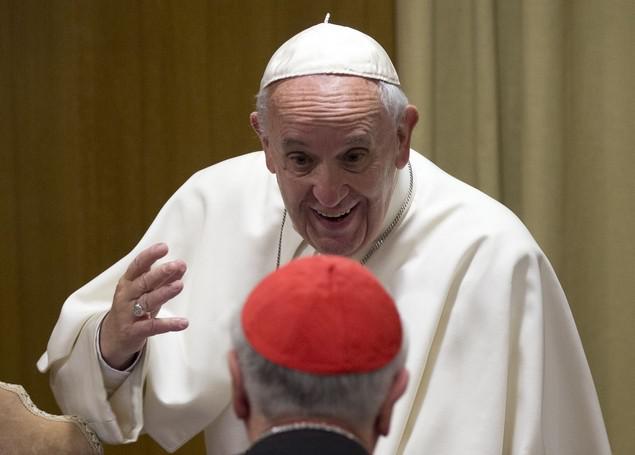|
Pope Francis calls for a more decentralized church
HeraldNet
VATICAN CITY — Pope Francis called Saturday for a Catholic Church that is far more decentralized, where the laity play a greater role, bishops conferences take care of certain problems and even the papacy is rethought. Francis issued the call during a ceremony Saturday to mark the 50th anniversary of the institution of the Synod of Bishops, a consultative body formed during the Second Vatican Council that was intended precisely to encourage more collegiality in the running of the church by inviting bishops to offer their advice to Rome. Over the past five decades, the synod has been little more than a talk-fest. But Francis has sought to re-energize it, and the contentious meeting under way at the Vatican, in which conservative and progressive bishops are squaring off over ministering to families, has been the result. Francis noted that he launched the family synod process two years ago by sending out a questionnaire to Catholic families around the world asking for their input — a strong sign that ordinary lay Catholics have an important role to play in the governance of the church and spreading the faith. “How would it have been possible to talk about the family without engaging families, listening to their joys and hopes, their pain and anxieties?” he said. One of the main themes running through the current synod is whether individual bishops' conferences can take on greater responsibility in charting pastoral strategies to deal with issues like ministering to gays and divorced and civilly remarried couples. Conservatives insist that only Rome can offer such doctrinal guidelines; progressives say the local churches know better what individual circumstances require. In his speech, Francis said the church needed to reflect further on “intermediate types of collegiality” involving bishops, even going back to some aspects of the greatly decentralized church of the past. Finally, he said a truly collegial church has implications for the papacy — and therefore relations with other Christian churches that split from Rome precisely over the primacy of the pope. Francis has been keen to insist that he is perhaps first and foremost the bishop of Rome. “The pope is not, all by himself, above the church but rather inside it as a baptized Catholic among other baptized Catholics, and inside the episcopal college as a bishop among bishops,” he said. At the same time, he added, the pope is called “to guide the church of Rome that presides in the love of all the churches.”
|
.
Any original material on these pages is copyright © BishopAccountability.org 2004. Reproduce freely with attribution.
